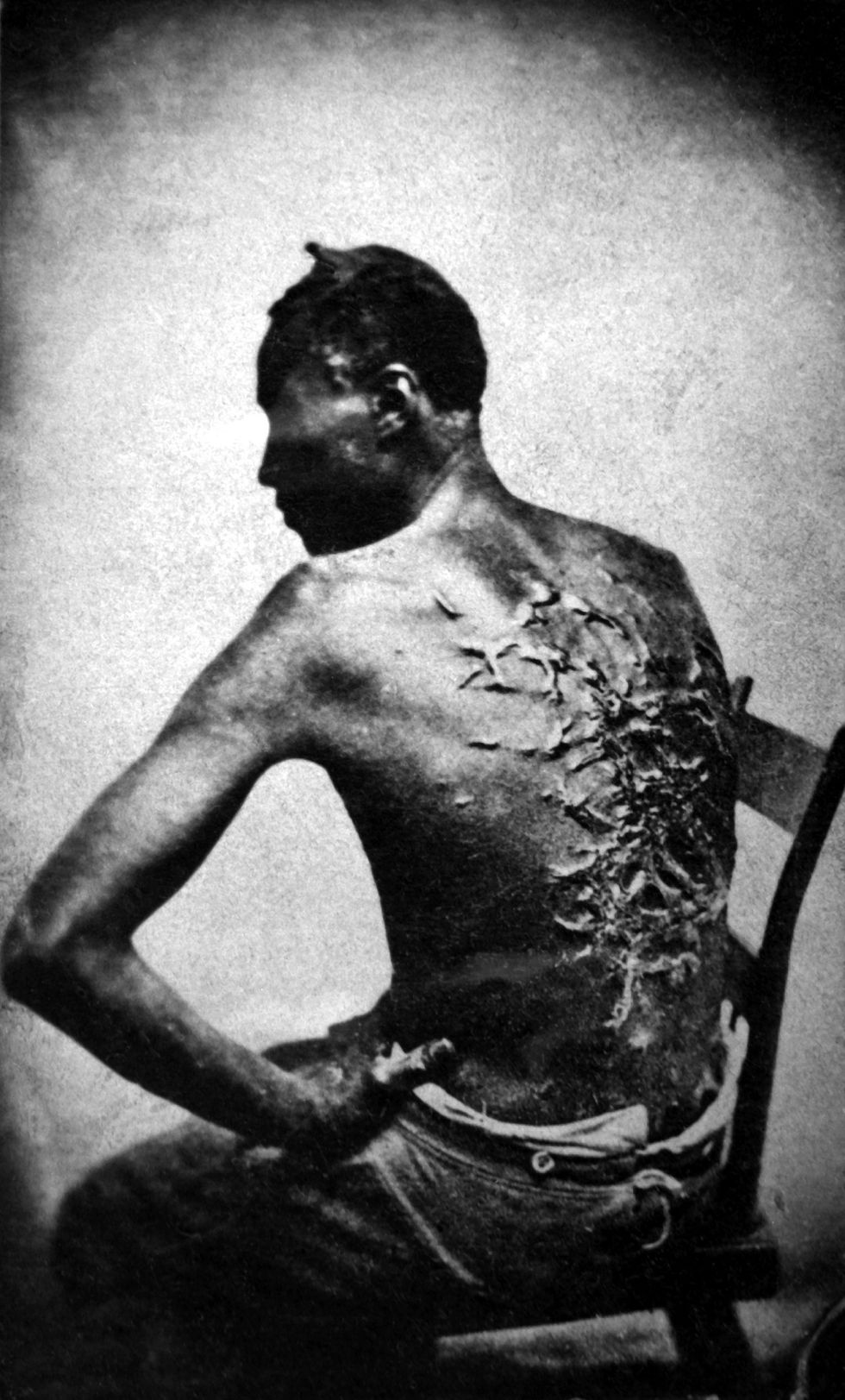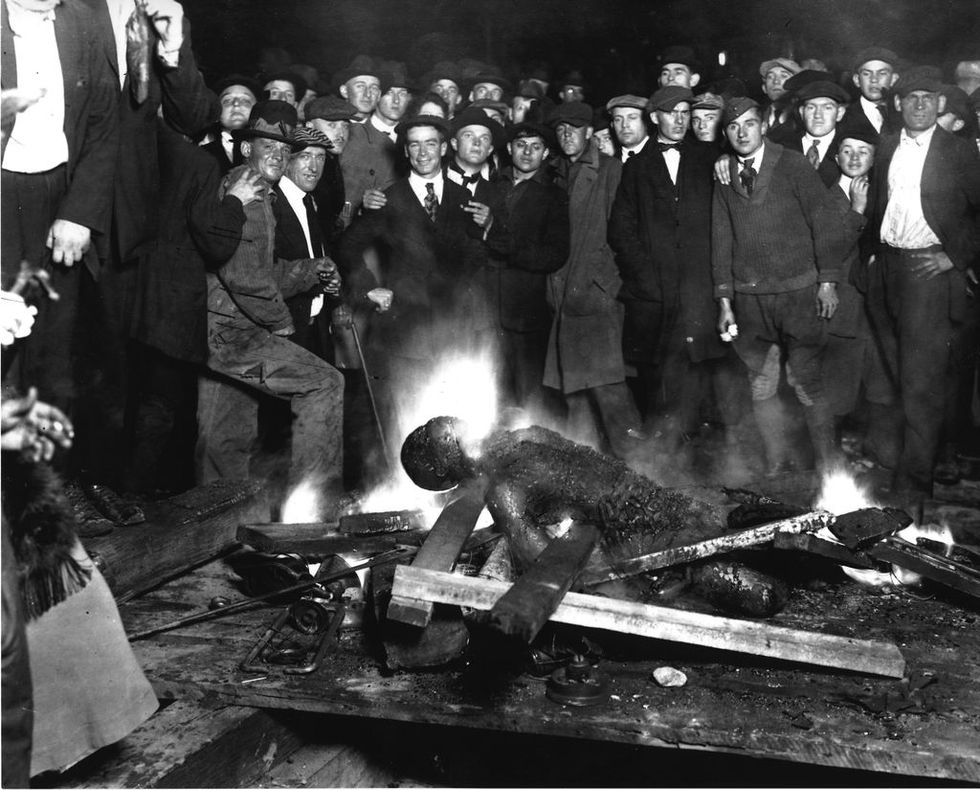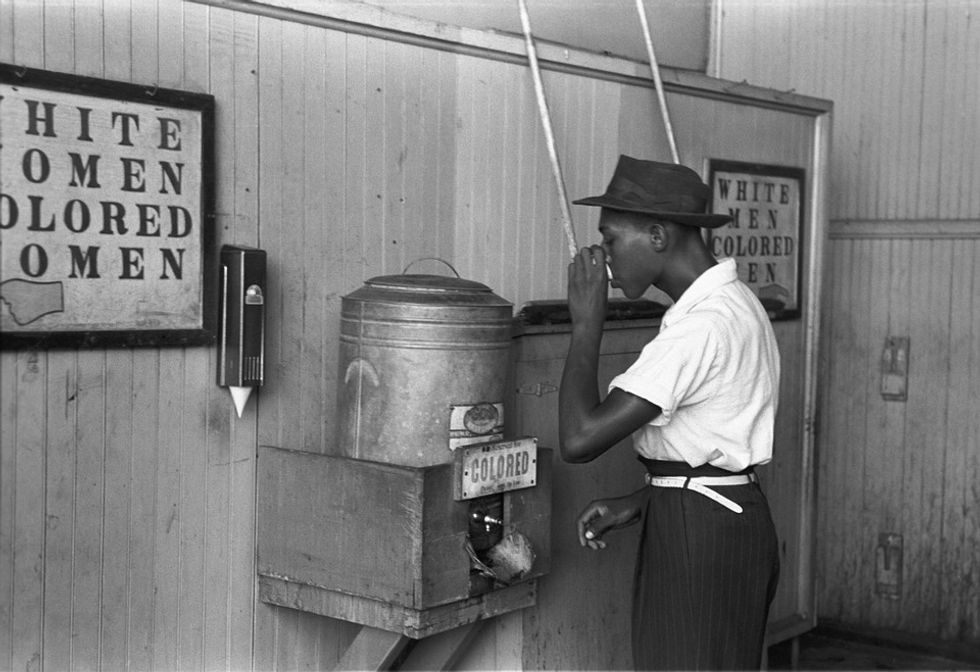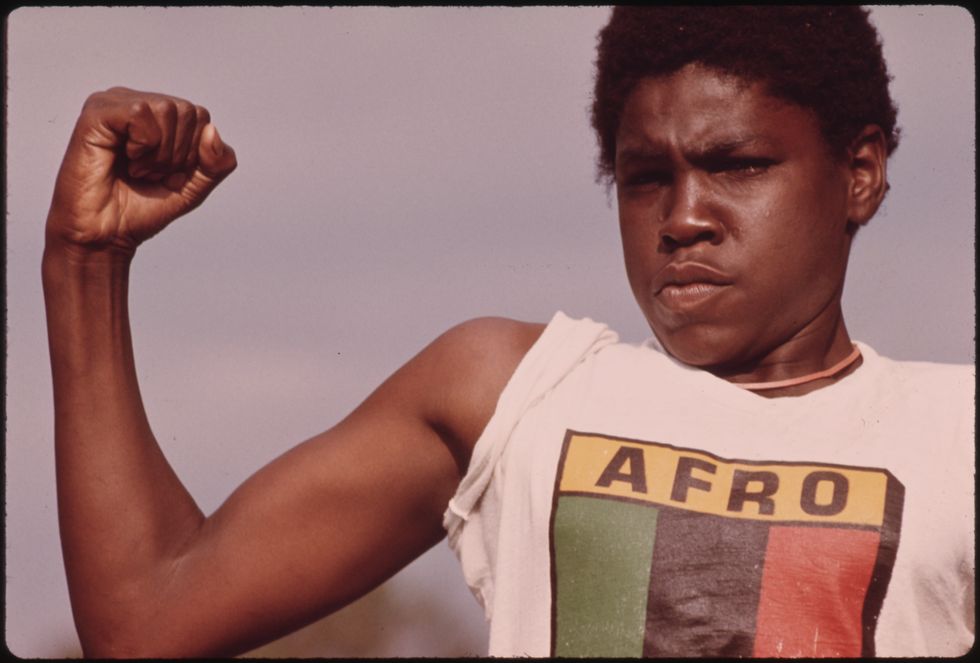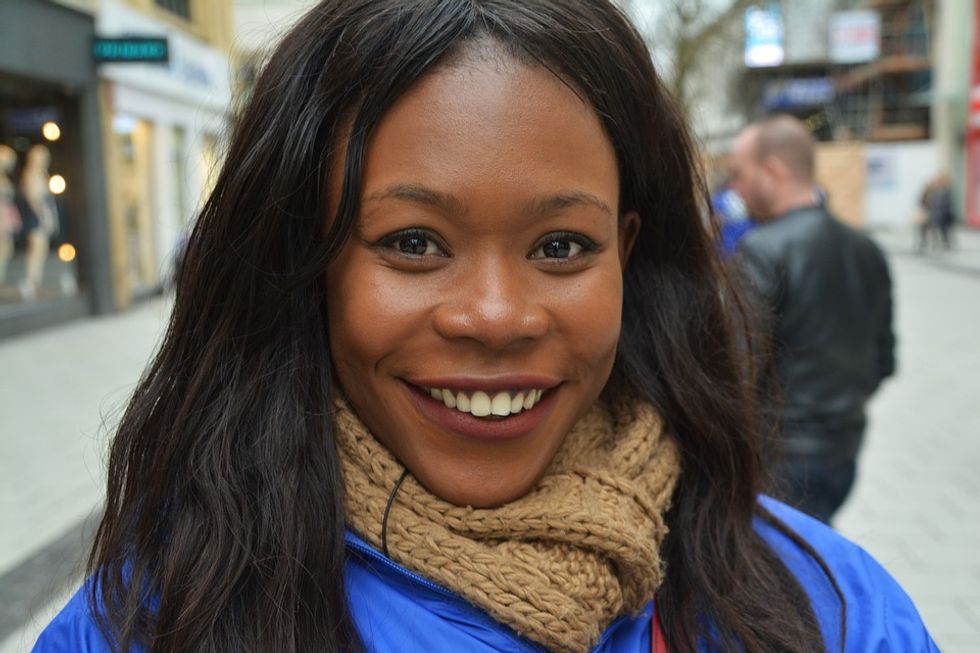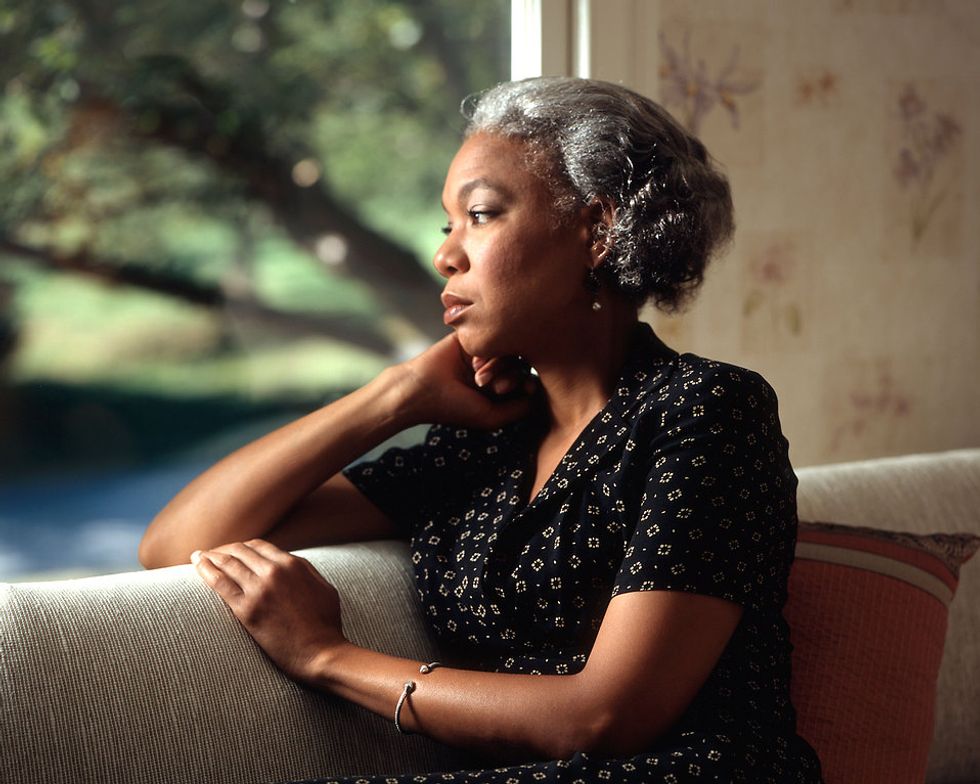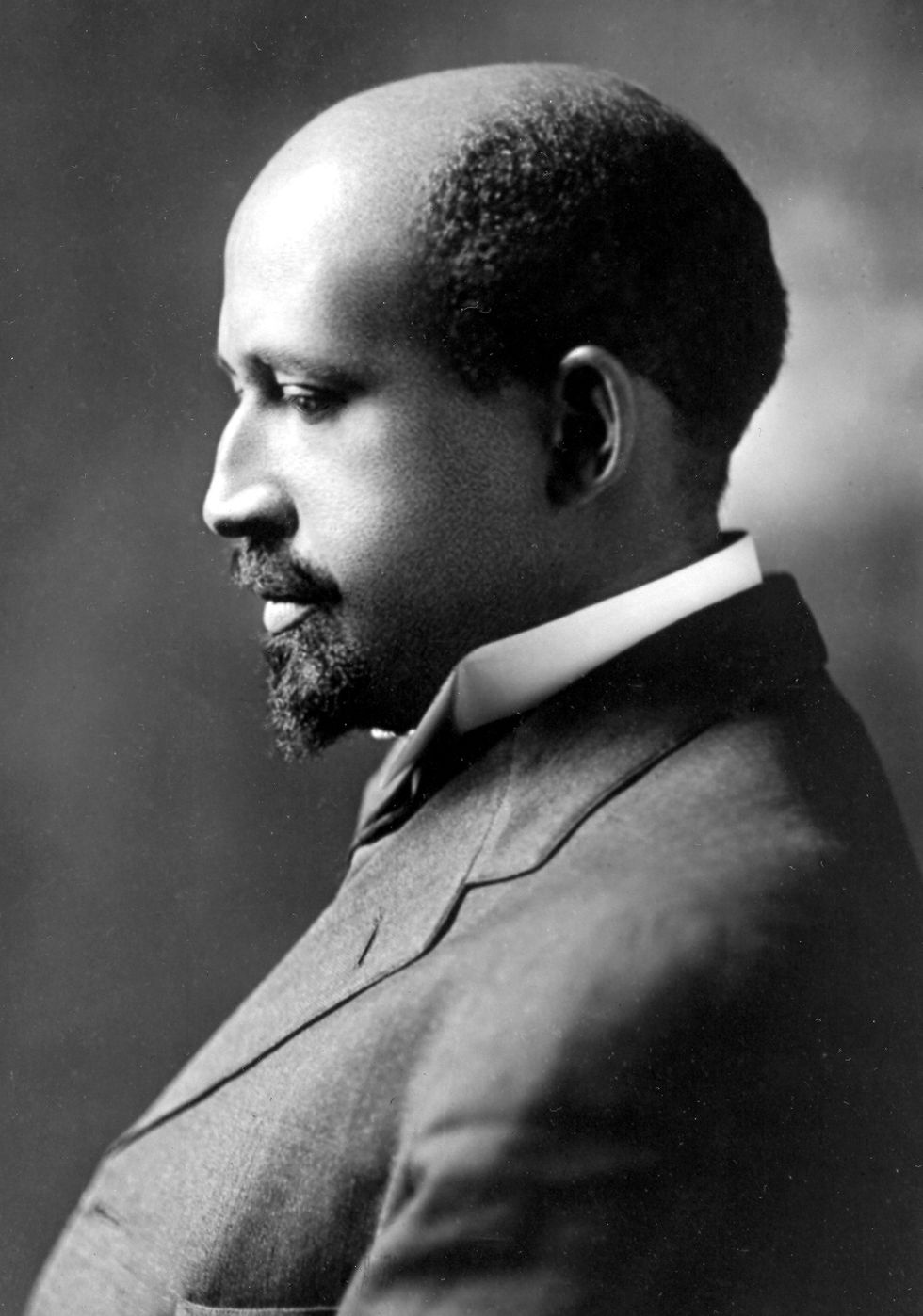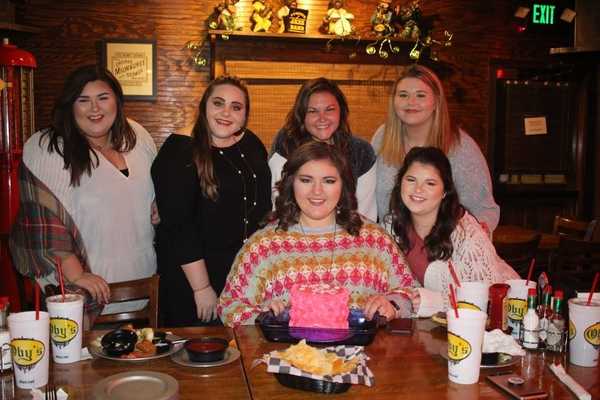“To be a Negro in this country and to be relatively conscious is to be in a rage almost all the time.”— James Baldwin
From womb to tomb, African Americans are susceptible to many varieties of subjugation. Monique W. Morris, co-founder of the National Black Women’s Justice Institute and the author of "Black Stats: African Americans by the Numbers in the Twenty-First Century," offers several upsetting statistics on Black folks living in this country.
—The unemployment rate for African Americans with a four-year college degree is 8 percent, compared to only 4.5 percent for whites who possess the same degree.
—Most of the nation’s worst food deserts are disproportionately located in cities with a high percentage of African Americans.
—20 percent of Blacks are more likely than whites to have asthma, which is only intensified by air pollution.
—78 percent of Black folks live within 30 miles of a coal-fired power plant, as opposed to the 56 percent of white people.
—Black people over the age of 12 that use drugs make up 10 percent of the population, yet they account for over triple the amount (32%) of those arrested for drug abuse violations.
—Though only 14 percent of the population in the United States, Blacks make up 37 percent of homeless individuals.
The principal cause for the current unequal and unjust conditions of Black people is racism — historic and contemporary. It affects each individual Black person directly and indirectly. Its prevalence, however, is masked by the difficulty in recognizing it.
No longer are we in the centuries where Blacks are enslaved and exploited.
No longer are we in the times where Blacks are dragged by white, murderous mobs and strung up by their necks and burned.
And no longer are we in the decades where facilities and services are segregated by white and colored.
Presently and contrastingly, racism is subtle. It can be virtually imperceptible if exercising antiquated definitions of the term, wherein racial superiority and inferiority, not power, is the essential tenet. Quantitative data allows for a crucial, unflinching illustration of the alarming disparities between African Americans and whites. With it, we can readily identify and compare how racism has hindered the Black individual in the U.S., all while benefiting their white counterpart, in almost every aspect of society.
However, the lives of the millions of individuals terribly affected by racism and discrimination cannot be fully explained by facts, numbers, and percentages — it is far too complex and intricate. The uniqueness of each life, and how it is lived, extends also to the Black Experience.
Although African Americans make up a tiny fraction of the total population and are stereotypically known to be a close-knit community, they are not a homogeneous group. Contrary to popular opinion, Black people have differing values, interests, personal lives, religious beliefs, political views, and jobs. Even their experiences with racism, discrimination, and what it means to be Black in the United States are very diverse.
A shared skin tone does not equate to shared existences.
For example, a Black man living in Sebring, Florida (the country’s poorest city), and a Black woman living in Atherton, California (the country’s richest city), may have somewhat related experiences as a result of the racism they both face, but they will not have identical perspectives on what it is like to be Black.
Even if the two lived in the same city, in the same neighborhood, on the same street, went to the same schools, and interacted with the same people, their experiences would still differ.
Think about the Black man in the U.S. He is subjected to extreme oppression and discrimination, and "Black Demographics" reports that Black men are at a perpetual disadvantage. They are more likely to be unemployed, to be in jail, and to live under the poverty level. Black men, compared to all men, are less likely to pursue higher education and to have a bachelor’s degree. They are more likely to be disabled. They have higher mortality rates and their population is steadily declining in size.
The Black man in America, without a doubt, suffers economically, educationally, and socially. He is, for sure, an oppressed individual — but as a man, he holds male privilege, so he also holds the power to be an oppressor.
While many Black men recognize and accept white privilege as truth, it is much more difficult for them to reach that level of understanding and acceptance in regards to (Black) male privilege. Both, however, are often indistinguishable to those in whom it benefits.
Though male privilege benefits all men, it looks different depending on the type of man. For example, a white man holds more power and privilege than a Black man (as a result of race), but that Black man will have more privileges than, for example, a Black woman (as a result of gender). Dr. L'Heureux Dumi Lewis-McCoy defines Black male privilege as “a system of built-in and often overlooked systematic advantages that center the experience and concerns of Black men while minimizing the power that Black males hold.”
Furthermore, this privilege has allowed Black males to evade acknowledgment of their own power to oppress (Black) women by simply redirecting the conversation to their own oppression at the hands of whites.
It is understandable why, considering their historic and contemporary oppression, Black men are reluctant to identify with privilege. It is not easy to hear that even in destitute conditions, you are privileged. It almost sounds like a slap in the face, but it is the unfortunate truth.
Privilege must be understood outside of the context of white people. It is more than economic, political, or militaristic power. It exists in many other areas of life; privilege is also social, cultural, sexual, institutional, and interpersonal.
In "The Black Male Privileges Checklist," Jewel Woods addresses the implicit benefits of being male in the Black community. Woods' list includes almost 100 cases in which Black men hold privilege, and specifically the power they hold over Black women, including not having to choose race over gender in political matters; learning mainly about the accomplishments and lives of Black men in the already minuscule chapters on African Americans in U.S. history; “‘strength’ as a man is never connected with the failure of the Black family, whereas the strength of Black women is routinely associated with the failure of the Black family”; and being considered a “good man” if you do not beat women, cheat, or lie to them.
If there is anyone more unprotected, underrepresented, unloved, and mistreated than the Black man, it is the Black woman.
The complex duality of being Black and being a woman birthed a new meaning to the concept of intersectionality, popularized by Kimberlé Williams Crenshaw, a Black woman. It can be argued that Black women embody the very essence of intersectionality as they frequently find themselves forced to choose between siding with women (usually white Feminists) and their race (Black men), despite the fact that both of these groups have inflicted great pain onto them.
Champions of women’s rights, such as Susan B. Anthony and Carrie Chapman Catt, did not care about the rights of all women, just the white ones. The Suffrage Movement was about white women wanting equal power to white men, the disenfranchisement of other women did not concern the now famous suffragettes.
Catt, the founder of the League of Women Voters, said it best: “ white supremacy will be strengthened, not weakened, by women’s suffrage.”
In the African American community, men reign. They drive all conversations of race without mentioning the plight of the Black woman. They are the chief physical, verbal, and emotional abusers of Black women.
Black women must bear the burden of being a victim of racism, at the hands of whites, and a victim of sexism, at the hands of (Black) men. "Black Demographics" also reports that, compared to all women and Black men, more Black women are impoverished and unemployed.
Additionally, African American women are at a greater risk of being incarcerated than other groups of women.
They are 48 percent of women’s prison populations.
“Only 2 percent of African American women are represented in science, technology, engineering, and mathematics, or STEM, fields, while women in total make up 24 percent of the STEM workforce,” American Progress states.
The Black woman in the U.S., compared to white women, are four times more likely to die from pregnancy-related causes or from breast cancer. Nearly half of African American women have hypertension, compared to 31 percent of white women.
For every 79 cents a white woman makes on the white man's dollar, the Black man makes 75.1 cents and a Black woman earns a mere 64 cents.
Black women are 18 times more likely to be rape victims than white women. white men are three times more likely to rape Black women than a Black man—even though, overwhelmingly, Black women are the Black male rapist’s victim.
The African American woman must endure hurtful stereotypes about her hair, her body, her attitude, her speech. The racism a Black woman faces is not the same as what a Black man will face, as her racism is so heavily affected by sexism.
Going even further in dissecting how intersectionalities affect the Black Experience, one must consider the privilege African Americans have over other African Americans, male or female, if they are lighter skinned. Colorism is the prejudice or discrimination against individuals with a dark skin tone, while assigning praise to those with lighter skin tones.
In the U.S., white is the epitome of beauty, power, and prestige. With this in mind, any Black individual, of either gender, that has a complexion that is closer to what is thought be whiteness than it is to what is thought to be Blackness, will always have privilege over a darker skinned Black person.
The fairer the complexion, the more power you have in society as you are less associated with “Black.” Even dating back to slavery times, slave masters would separate enslaved African Americans by how light or dark their skin tones were. The darker enslaved Blacks were subjected to the arduous work of the fields, while their lighter enslaved counterparts would work in the house.
Though, it should never be attempted to “prove” that Blacks in the fields had a “harder” time than those in the house, because, either way, both parties were slaves. What can be taken from this, though, is how whites negatively perceived darker skinned individuals in comparison to lighter skinned folks, and how these perceptions were subconsciously adopted by Black people.
Today, this sentiment of darker skin as “bad” and the attribution of positive qualities to light skin still persists.
“[Y]ou [have] [B]lack sororities and fraternities who [use] the ‘brown paper bag test’ to deny entrance to anyone darker than the bag,” Jasmine Cannick writes.
The skin bleaching industry is valued in the high billions of dollars.
whites rate the intellect of lighter skinned Blacks as higher than those with darker skin.
Lighter skinned Black women are given shorter sentences than darker skinned Black women.
Within the Black community, there is also preferences for lighter skin. For example, in October 2007, a party promoter in Detroit, Michigan, put the word out that any woman with light skin would be given free admission to the party.
Even great Black intellectuals such as W.E.B. DuBois called on the Black community to “produce a college-educated class whose mission would be to serve and guide the progress of the masses.” Popularly referred to as “Talented Tenth,” the list of Black leaders, both men and women, that DuBois sought out to achieve this goal were 99 percent light skinned Blacks.
Furthermore, throughout the 20th century, many prominent leaders of the Black community were very light skinned, almost white-passing. But, at the end of the day, Black is Black. However, it does no one any good to ignore the privilege being closer to whiteness gives you as an African American. Whether these light-skinned Black folk acknowledge or continue to deny the unfair advantages they are given, sadly, does not change the fact that they will still receive them.
There are other numerous factors (and oppressive isms in which they correlate to) that contribute to the varying experiences of Black folks in the U.S. and their experiences with racism.
Besides the ones aforementioned, there is class (classism), sexuality (heterosexism), gender expression (cissexism), and ability (ableism). These many factors, in addition to sexism and colorism, can affect not only the severity of anti-Black racism and discrimination, but also the manner in which it manifests.


